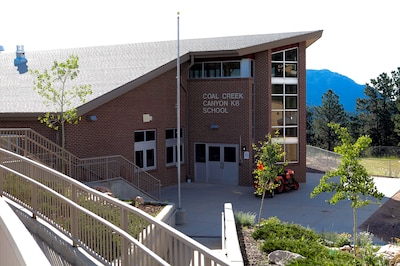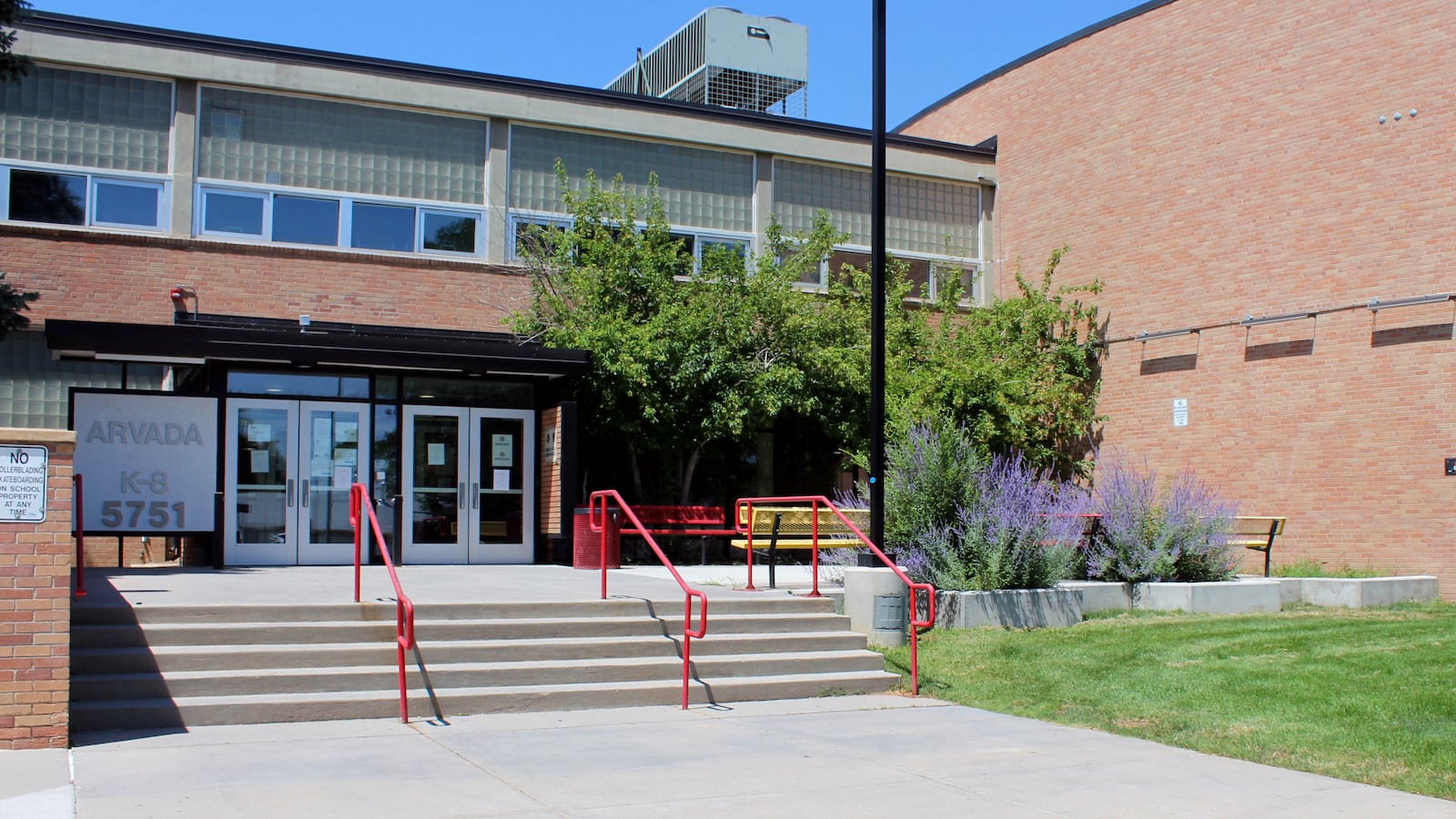Sign up for Chalkbeat Colorado’s free daily newsletter to keep up with education news in Denver, Jeffco, and around the state.
Jeffco, Colorado’s second largest school district, is recommending the closure of two K-8 schools as the district continues to address the decline in student enrollment.
Sixteen elementary schools were closed last year in the first round of the district’s closure plan.
The two schools, Coal Creek Canyon K-8 and Arvada K-8, are the smallest of five K-8s in Jeffco Public Schools. Coal Creek, which is located near the Boulder County border and has fewer than 100 students, is also smaller than any of the district’s 17 middle schools.
The proposed closure of Coal Creek K-8, however, will include a search for a charter school provider that may reopen in the community.
The Jeffco school board received the recommendation Thursday, but will vote on the proposed closures at its Oct. 12 meeting. There will be four school-based community meetings and two formal one-hour public hearings with the school board before the vote.
If approved, the latest closures would bring the number of schools closed in Jeffco to 21 since 2021.
Before last year’s elementary school closures, the district said their buildings had the capacity to serve 96,000 students, but were only filled with about 69,000. With the closures to date, the district now has the capacity for about 88,000 students, and is currently serving about 66,500.
Due to declining birth rates and fewer children living in the area, the number of students entering elementary schools is not replacing the larger group of students graduating and exiting the district.
As the district considers secondary school enrollment, the board has already decided to close Moore Middle School at the end of this school year. The school will merge with Pomona High School, which will serve students in grades six through 12.
The two K-8 closures would impact about 524 students and 97 staff members. The district estimates 26 of the students impacted have also been displaced by a previous school closure.
District leaders say they’ll need to closely continue to monitor enrollment trends, but so far, aren’t planning for a third round of closures next year. A moratorium on high school closures is still in effect until June 2024.
A more complicated proposal for Coal Creek
Lisa Relou, chief of strategy and communications for Jeffco, said this round of recommendations was more complicated, in part because these secondary schools are not located as close to each other as elementary schools.
District leaders said they visited the Coal Creek Canyon community in the spring and heard that families are interested in small schools within their close-knit community. Currently, the closest Jeffco school, Three Creeks K-8, is more than 10 times larger with more than 1,000 students, and approximately 10 miles, or a 15-minute drive away. The school does have room for the Coal Creek students.
But, “it’ll be a significant change for these families,” Relou said.
The district plans to search for charter providers willing to open a school in the area. Regardless, the middle school grades will close at the end of the school year, if the closure is approved. But if the district receives interest, then the closure of the elementary grades will be delayed for another year while the charter application is considered.

If no viable providers show interest in the next month, then the full school will close at the end of this school year.
Coal Creek’s building can accommodate 200 students, but in that canyon community, Relou said, a school likely will never have that many students. The highest enrollment the district has on record for the school was in 2013-14 with 159 students.
“There are charter schools out there designed to serve a small number of students,” Relou said. “It’s just not sustainable as a Jeffco traditional school.”
As a traditional school, Jeffco not only gives Coal Creek the highest funding per student of any school in the district, but has also subsidized the school with an additional $469,468 in the last year.
In the meantime, district leaders are also researching how other districts subsidize small schools, and say they’re open to considering a transportation arrangement with neighboring districts that may have a more attractive school option for Coal Creek families.
Last school year, more than a third of Coal Creek’s students came from outside Jeffco boundaries.
The proposed Arvada K-8 closure
Arvada K-8 was told last school year that it was being considered for closure because it is on the state’s watchlist for years of low performance, but ultimately it was selected because of its low and declining enrollment, and complicated boundary placement, district officials said.
Currently, Arvada K-8 has approximately 557 students. Of those, 86% qualify for free or reduced-price lunch, a measure of poverty.
Last year, the school had 550 students including 351 who lived in the neighborhood. But another 581 K-8 students who lived in the school boundary chose to go to a different school. Of those, 135 went to charter schools, while the majority went to other Jeffco schools.
Arvada K-8 is the only K-8 in the district that has separate boundaries for elementary and middle school students.
However, the school isn’t even within its own elementary boundary.
And, because it has separate boundaries, the school also serves as a separate middle school, instead of a K-8, meaning that it takes a significant number of new students at sixth grade who have been through traditional elementary schools.
If the school is approved to close, the district would redraw the area boundaries allowing North Arvada Middle School to take in all of the sixth through eighth grade students, and elementary students would be redrawn into a boundary to attend Lawrence Elementary. The district also notes that nearby Swanson and Secrest elementaries have space to accommodate students who instead want to use the choice enrollment process to attend those schools.
Students in the special needs program, called the Significant Support Needs Center Program, would be relocated to the Pomona 6-12 in the 2024-25 school year.
The district is estimating there will be renovation costs of up to $500,000 at North Arvada Middle School, and about $675,000 at Lawrence Elementary if the latest proposed closures are approved.
Yesenia Robles is a reporter for Chalkbeat Colorado covering K-12 school districts and multilingual education. Contact Yesenia at yrobles@chalkbeat.org.

